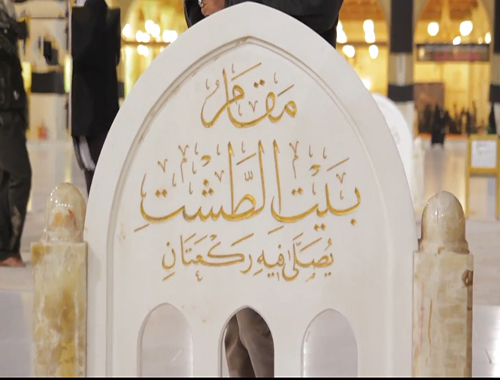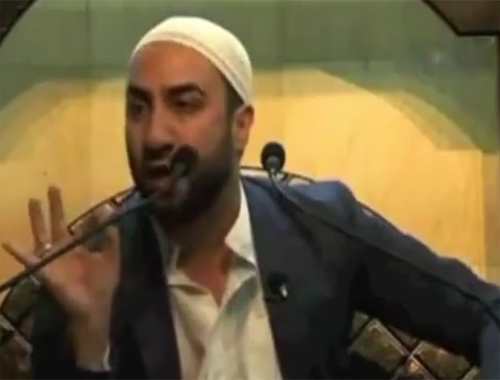It is Compulsory to repay a Debt
- Details
- Hits: 2539
It is Compulsory to repay a Debt
If the time of payment is due or if the creditor demands back his loan the debtor is obliged to repay immediately. The loan must be repaid even if the debtor has to sell his excess belongings or even if he has to sell his things at less than the market value. However if he is compelled to sell at a throwaway price then it is not obligatory for the debtor to sell those things. If the debtor does not have anything like a carpet, clothes, household items, shop etc. that he can sell and repay the loan, then he must take up a job that is suitable for his position. In any case he is under an obligation to clear his due.
Carelessness and sloth with regard to the repayment of loan are absolutely HarÄm; and a greater sin. If the debtor possesses only those things that are necessary for his life; like a modest house, carpets and clothes etc, then it is not necessary for him to sell them to repay his loan. The creditor cannot compel the debtor to sell off these things. However, if the debtor wishes to sell them of his own accord, he can do so, and the creditor is allowed to accept the loan. But it is desirable that the creditor respites the debtor till the time Allah (S.w.T.) makes him capable of repaying his debts.
It is related by Uthman bin Ziyad: “I informed Imam as-Sadiq (a.s.) that a person owed money to me and wished to dispose off his residence to repay me. Upon hearing this Imam (a.s.) said thrice:
“I seek Allah’s refuge for you.” (That you cause this poor man to sacrifice his dwelling place to pay).
Many similar traditions have been recorded in books of hadith. It is narrated that a famous companion of Imam Musa al-Kadhim (a.s.) and Imam RiÄa (a.s.), by the name of Muhammad bin Abi Umair traded in cloth. It so happened that mounting losses pushed him to the brink of poverty. One of his debtors owed him 10,000 dirhams. When he learnt of the companion’s misfortune, he sold his house and brought the money to repay the amount that he owed. Muhammad bin Umair inquired if he had received the amount of 10,000 dirhams as inheritance. When he replied in the negative, he asked if he had received it as a gift from someone. Again he replied, “No, but I have sold the house where I lived, so that I can repay my debt to you.”
Muhammad bin Umair related a saying of Imam Ja’far as-Sadiq (a.s.), prohibiting a creditor to force his debtor to sell his house and said, “By Allah, at present I am in need of each and every dirham but I cannot take a single dirham from this.”
Actually Muhammad bin Abi Umair was a rich man having assets worth over 500,000 dirhams. His present state of poverty was because of his closeness to Imam Musa al-Kadhim (a.s.). Due to this he was imprisoned for four years and lashed mercilessly. The tyrant Caliph confiscated whatever he had. May Allah have mercy upon such oppressed people. It is an established fact that if someone deprives a person of his rights then each day that passes makes him liable to a sin which is equal to collecting Ethesher (a 10% tax collected on orders of tyrant ruler).
Imam Muhammad al-Baqir (a.s.) says:
“The martyr in Allah’s way is absolved of every sin except for the unpaid debt; which has no substitute. Repaying the debt is a must; or the creditor may forgo it. (otherwise even the martyr will be interrogated regarding his debts).”
(Wasa’il ul-Shia Chap 4, vol.13, page 83)
Moreover, he (a.s.) has remarked:
“As soon as the first drop of a martyr’s blood is spilled all his sins are forgiven. Except for the unpaid debt, which is not excused. Its forgiveness can be achieved only by repaying (the debt).”
(Wasa’il ul-Shia chap.4, Vol.13, page 85)
The gravity of all this can be ascertained from the incident when a person from the Ansars departed from this world. He had left behind an unpaid debt of two dinars. The Holy Prophet (S) refused to pray the SalÄt al-Janaza till some of the relatives undertook the responsibility to repay the deceased’s debt.
When Muawiya bin Wahab questioned Imam Ja’far as-Sadiq (a.s.) regarding this tradition, he (a.s.) replied:
“This is an authentic tradition and the Prophet’s saying conveys the same meaning that people should derive lesson from it and understand the seriousness of debt. They should not regard it insignificant and must make it a point to repay their debts.”
(Wasa’il ul-Shia)
The Holy Prophet (S), Hazrat ‘Ali (a.s.), Imam Hasan (a.s.) and Imam Husain (a.s.) were all having some debts when they departed from this world but they appointed their legatees who repaid their debts after their passing away. This hadith signifies that it is not prohibited to be in debt but to ignore or to delay the repayment of debt is HarÄm. It is not even advisable to travel (for pilgrimage) to Mecca and Madinah without first clearing one’s debts.
Abu Samaniya asked Imam Muhammad al-Baqir (a.s.) regarding this, “I wish to go and settle down in Mecca or Madinah but I am in debt to some of the people here.” Imam (a.s.) replied:
“Go home! First repay your debts. It must not be that you die in this condition and meet your Lord while you are in debt. For a believer never does Khayanat (misappropriation of trust).”
(al-KÄfi vol.5 page 94)








![take advantage of your [present] time](/en/media/com_hwdmediashare/files/99/f5/fb/5293162f4d04afb1ed8da3034e984340.jpg)


